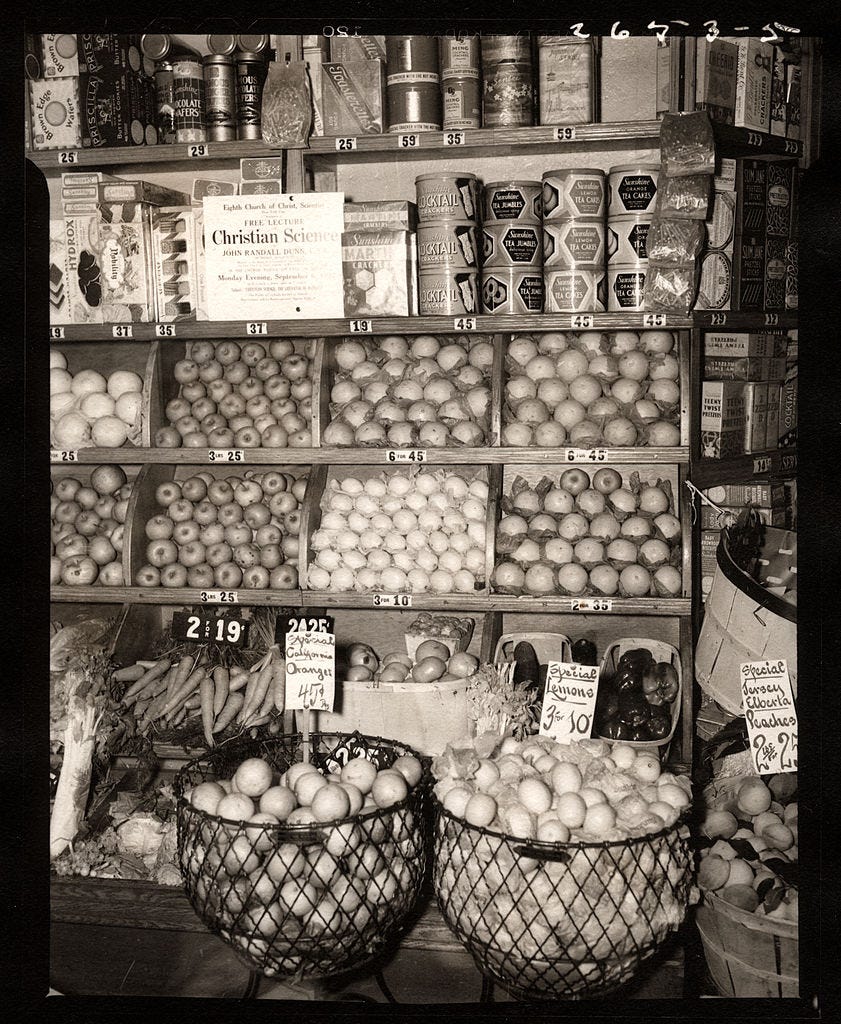I Know This Isn't "Poem Club," but...
I found this lovely and timely. And, actually, it is a brilliant little story.
By the Well of Living and Seeing, Part II, Section 28: “During the Second World War”
During the Second World War, I was going home one night
along a street I seldom used. All the stores were closed
except one—a small fruit store.
An old Italian was inside to wait on customers.
As I was paying him I saw that he was sad.
“You are sad,” I said. “What is troubling you?”
“Yes,” he said, “I am sad.” Then he added
in the same monotone, not looking at me:
“My son left for the front today and I’ll never see him again.”
“Don’t say that!” I said. “Of course, you will!”
“No,” he answered. “I’ll never see him again.”
Afterwards, when the war was over,
I found myself once more in that street
and again it was late at night, dark and lonely;
and again I saw the old man alone in the store.
I bought some apples and looked closely at him:
his thin wrinkled face was grim
but not particularly sad. “How about your son?” I said.
“Did he come back from the war?” “Yes,” he answered.
“He was not wounded?” “No. He is all right.”
“That’s fine,” I said. “Fine!”
He took the bag of apples from my hands and groping inside
took out one that had begun to rot
and put in a good one instead.
“He came back at Christmas,” he added.
“How wonderful! That was wonderful!”
“Yes,” he said gently, “it was wonderful.”
He took the bag of apples from my hands again
and took out one of the smaller apples and put in a large one.
(With thanks to the Poetry Foundation)







I think this is a great little story because of the way it raises a very simple and clear question (Did the man's son die in the war?) which then makes a sort of branching structure in my mind: He did die (or he did not). If he did die (which is my first-order expectation), how is the poem/story going to use and build on that to make me feel something new? And likewise if the son didn't die. So: how is this simple thing going to ascend into something more than anecdote? I feel it succeeds in doing that by erring on the side of the less-expected answer (the son lives), and for the unexpectedly muted quality of the man's gratitude - and for the two occasions where the grocer improves the narrator's selection (with the apple swapping). There's something lovely about that - why twice? What is offered in second iteration that isn't in the first?
I am always interested in stories that easily could go dark and somehow find a legit and non-cheesy way not to....
That is so beautiful. This is by way of saying thank you:
You Reading This, Be Ready
Starting here, what do you want to remember?
How sunlight creeps along a shining floor?
What scent of old wood hovers, what softened
sound from outside fills the air?
Will you ever bring a better gift for the world
than the breathing respect that you carry
wherever you go right now? Are you waiting
for time to show you some better thoughts?
When you turn around, starting here, lift this
new glimpse that you found; carry into evening
all that you want from this day. This interval you spent
reading or hearing this, keep it for life –
What can anyone give you greater than now,
starting here, right in this room, when you turn around?
William Stafford